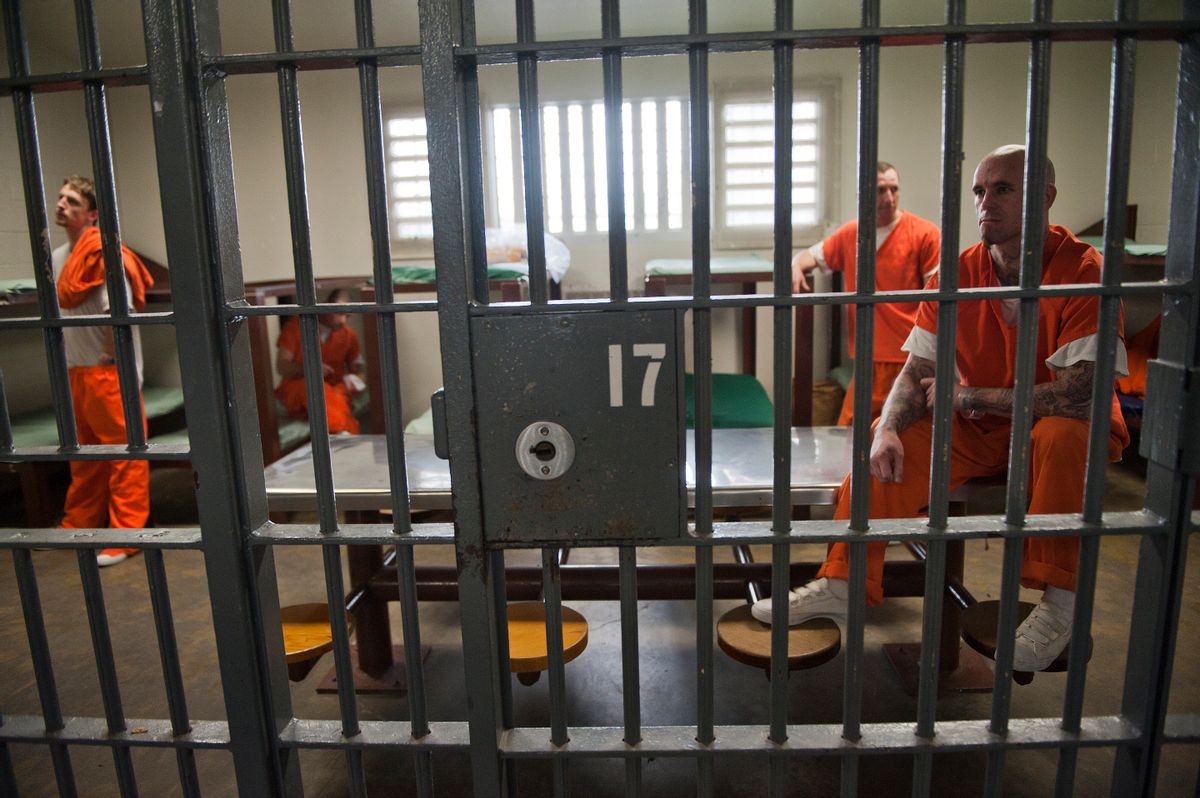American prisoners are reportedly planning a widespread strike across 24 states against labor and living conditions starting on 9 September 2016, an action in which social media has played an unprecedented role.
As Wired noted, the prison labor strike movement has been catalyzed by technology:
Sure, they’ve written letters and connected via landline, both acceptable forms of communication under prison rules. But it’s the tech forbidden to inmates that they’ve nevertheless managed to use to truly amplify their message. Today, prisoners plan to take to Facebook and Twitter to protest and share their stories, and the question is: will prisons request those accounts be taken down? As with protests over police violence, social media may well find itself at the center of the conflict between the criminal justice system and those protesting its abuses. Except this time, the protesters are behind bars.
The strike is being organized, in part, by the Incarcerated Workers Organizing Committee (IWOC), a branch of the Industrial Workers of the World. In their official statement, the IWOC likened prison labor to slavery and called for a strike organized to coincide with the 45th anniversary of the Attica Prison uprising:
Slavery is alive and well in the prison system, but by the end of this year, it won’t be anymore. This is a call to end slavery in America. This call goes directly to the slaves themselves. We are not making demands or requests of our captors, we are calling ourselves to action. To every prisoner in every state and federal institution across this land, we call on you to stop being a slave, to let the crops rot in the plantation fields, to go on strike and cease reproducing the institutions of your confinement.
This is a call for a nation-wide prisoner work stoppage to end prison slavery, starting on September 9th, 2016. They cannot run these facilities without us.
Noelle Hanrahan of Prison Radio, an organization whose correspondents are behind bars and report from inside prisons, told us it has been difficult to ascertain how many inmates are participating in the strike because some of the correspondents have been placed in solitary confinement and said "The last 30 years has been a sea change in terms of our incarceration rates. This type of incarceration is creating crime. No other country in the world does it."
A 2014 investigation by the New York Times found serious issues with labor programs involving immigrants being held in detention:
[In 2013], at least 60,000 immigrants worked in the federal government’s nationwide patchwork of detention centers — more than worked for any other single employer in the country, according to data from United States Immigration and Customs Enforcement, known as ICE. The cheap labor, 13 cents an hour, saves the government and the private companies $40 million or more a year by allowing them to avoid paying outside contractors the $7.25 federal minimum wage. Some immigrants held at county jails work for free, or are paid with sodas or candy bars, while also providing services like meal preparation for other government institutions.
Quartz noted courts have ruled that because inmates and prisons don't share the classic employer-employee relationship, prisoners don't need to be granted the same labor protections afforded to other citizens:
Unlike other American workers, these prisoners are not protected by labor laws. They don’t have access to worker’s compensation, they get payed well below the minimum wage, and they cannot effectively form unions. Courts have ruled that because the relationship between prisons and inmates is not that of an employer and a worker, inmates don’t get these labor protections.
The Bureau of Prisons states that inmates convicted of crimes are required to work if they are physically able, and that their wages are well below the federal minimum wage level:
Sentenced inmates are required to work if they are medically able. Institution work assignments include employment in areas like food service or the warehouse, or work as an inmate orderly, plumber, painter, or groundskeeper. Inmates earn 12¢ to 40¢ per hour for these work assignments.
The Bureau of Prisons hasn't yet responded to our query about the reported strike.
